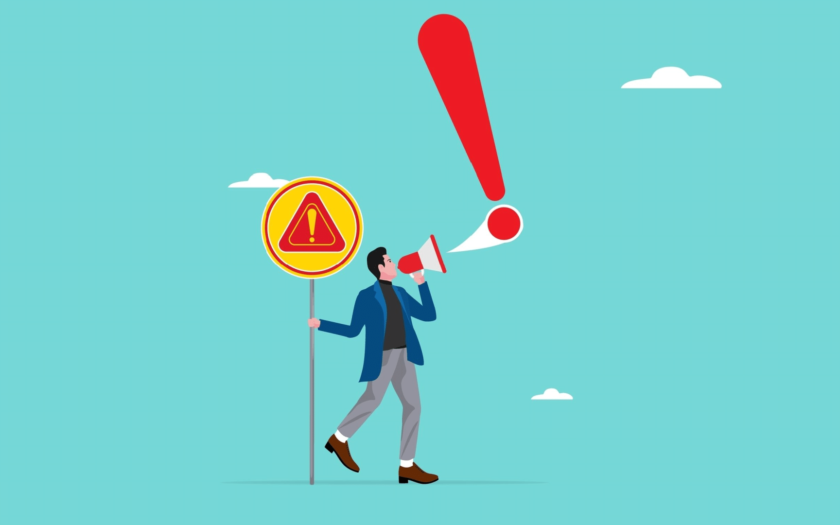Chances are, you are going to have to do a significant investigation to really drill down to the cause and severity of the rankings drop.
You may need to involve other teams, like your developers, to see if there have been changes on the site recently. You may need to look into competitors and see if they have been affected similarly.
None of this is going to happen successfully in the middle of the night, so it’s not an SEO emergency.
Instead, it’s a high-priority task that will take some time to complete.
Dig deeper: 16 reasons why your page isn’t ranking on Google
Traffic drops
Similarly to rankings drops, seeing your organic traffic take a nose-dive can be worrying, especially if you’re not the one who discovered it.
No one wants a call from their CEO asking why Google Analytics looks so terrifying.
You may want to quickly rule out some immediate causes. For example, you’ll be able to determine if it is actually a tracking issue like the GA code has been removed from your site. That could turn what feels like an emergency into a quick ticket for your analytics team.
However, if the traffic drop is definitely a drop and not a tracking issue, you’ll again need to be methodical in your diagnostics.
Look at what’s happened with other channels.
Has your paid media team started bidding on terms that used to solely drive organic traffic?
Are you experiencing a seasonal decline?
Is it specifically the rankings, search volumes or click-through rate that have caused traffic to decrease?
This isn’t an emergency because you must monitor it over a few days to determine if it is a blip, seasonal decline or the beginning of a sustained decline.
For example, you may see significant traffic declines in December. There’s likely no reason to be logging onto your laptop on Christmas Day if you know that your B2B business sees very little traffic during the holiday week.
Dig deeper: 13 questions to diagnose and resolve declining organic traffic
Algorithm update
The SEO industry gets nervous when a Googe algorithm update is announced. It can feel like a lot is at stake. The pressure is high.
Realistically, the first few days after an algorithm update begins rolling out leave SEOs with little to do but wait.
We’ll see fluctuations in rankings and traffic, but these updates can take weeks to roll out fully.
In the meantime, keep monitoring the changes happening in your SERPs, read up on what other SEOs are noticing about theirs and wait to see how it all shakes out.
Once the update has finished, you’ll be in a much better position to analyze what’s happened and determine whether you need to remedy any losses.
Dig deeper: How to communicate Google core updates to executives
Manual action
No one wants to see this alert in Google Search Console. This might feel like an emergency when you discover that your site has been hit with a manual action.
As Google says:
“Most manual actions address attempts to manipulate our search index. Most issues reported here will result in pages or sites being ranked lower or omitted from search results without any visual indication to the user.”
Knowing that Google perceives your site to have spammy elements, and this could result in pages or the entire site being demoted in the SERPs, is highly concerning.
However, even if you know the “manipulative” activity that has led to this action, it will likely not be a quick fix.
For most SEOs, the activity isn’t something they have engaged in and, therefore, will take some time to unpick.
Once you have cleaned up the issues, you will still need to submit a reconsideration review request.
Google states in its Search Console Help Center:
“Most reconsideration reviews can take several days or weeks, although in some cases, such as link-related reconsideration requests, it may take longer than usual to review your request.”
Even if you work all weekend to fix this, the manual action will likely not be lifted soon.
Know what is and isn’t an SEO emergency
When faced with a time-sensitive SEO problem, you will want to get working on it as soon as possible. However, the issue can usually wait a day or two.
Learn to prioritize your SEO fixes so the most impactful ones get dealt with first.
Develop resilience and the confidence to educate stakeholders on what really needs to be addressed right now and what would be better dealt with after some consideration and time.
Contributing authors are invited to create content for Search Engine Land and are chosen for their expertise and contribution to the search community. Our contributors work under the oversight of the editorial staff and contributions are checked for quality and relevance to our readers. The opinions they express are their own.
